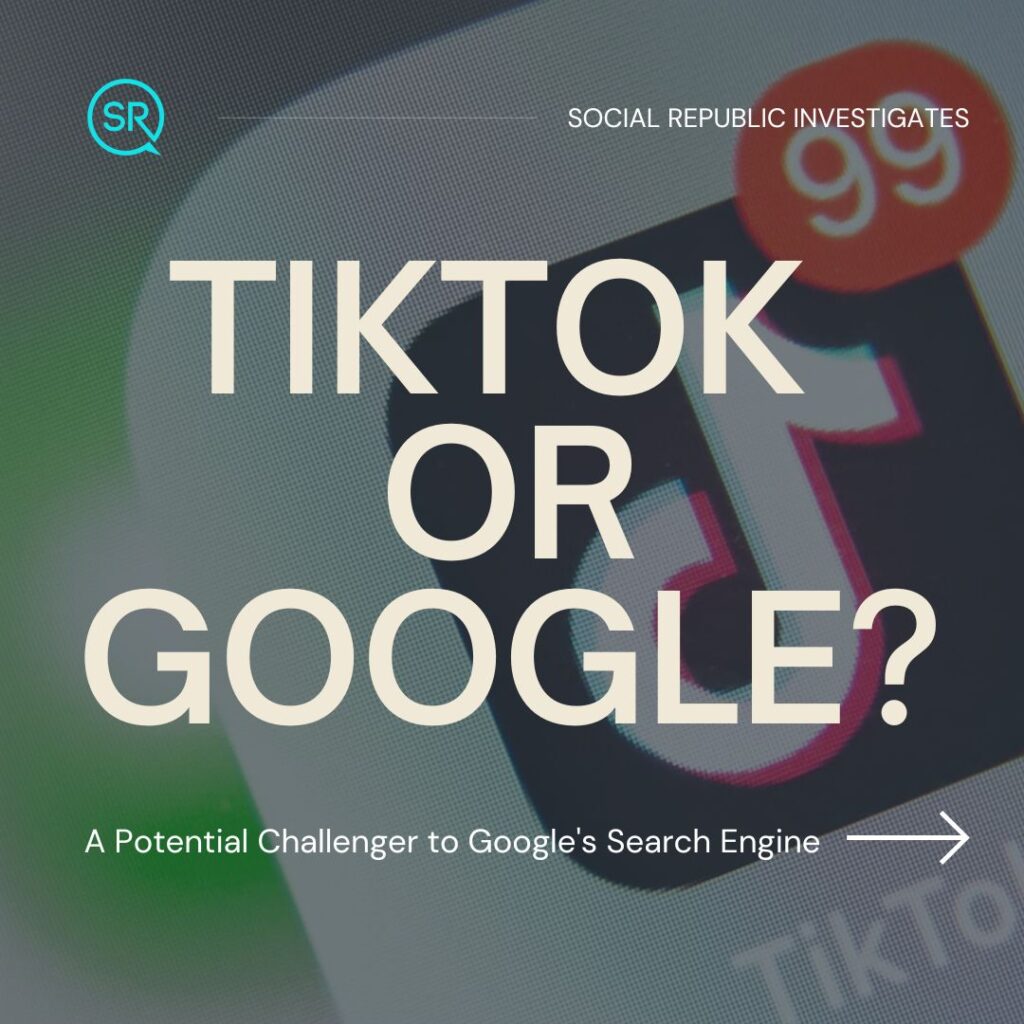In the fast-paced world of social media, innovation is a constant driving force that disrupts established norms. One such emerging contender that has garnered immense popularity is TikTok, the social media platform known for its short-form videos. Whilst primarily recognised as a platform for entertainment and creative expression, TikTok has the potential to redefine the landscape of search engines and even challenge the dominance of the mighty Google.
Read on as we explore how TikTok could replace Google as the most popular search engine, and the factors that contribute to its rising influence.
The Power of Video-Based Search
Firstly, TikTok’s key strength lies in its video-based content format. Traditional search engines like Google predominantly rely on text-based queries to retrieve information. TikTok introduces a refreshing alternative by leveraging the power of video.
This medium enables users to discover and consume information in a more engaging and visually appealing manner. As a result, this resonates particularly well with younger audiences. Futhermore, by blending entertainment and education seamlessly, TikTok has effectively captured the attention of millions of users worldwide.
TikTok Algorithmic Recommendation System
Secondly, TikTok’s algorithmic recommendation system is the backbone of its success. It utilises artificial intelligence and machine learning techniques to curate personalised content feeds for users based on their preferences, behaviours, and engagement patterns.
This algorithmic prowess allows TikTok to present highly relevant and captivating videos to its users, fostering a sense of discovery and serendipity. Therefore, users spend more time on the platform, actively engaging with content that aligns with their interests.
User-Generated Content as a Knowledge Base
TikTok thrives on user-generated content, where individuals from various backgrounds and expertise create and share videos on a wide range of topics. This vast repository of user-generated knowledge can function as a comprehensive knowledge base, providing insights, explanations, tutorials, and even answers to specific queries.
As more users contribute their expertise, TikTok’s potential to serve as an information hub grows exponentially, offering a more diverse and dynamic search experience.
Efficient and Accessible Mobile Experiences on TikTok
TikTok’s success is largely attributed to its seamless mobile experience. With the majority of internet users accessing the web through mobile devices, TikTok has capitalised on this trend by optimising its platform for mobile usage.
The app’s intuitive interface, streamlined navigation, and quick load times provide users with a hassle-free experience that encourages prolonged engagement. This mobile-centric approach sets TikTok apart from Google, which primarily originated as a desktop search engine.
Integration of E-Commerce and Advertising
Lastly, TikTok has rapidly evolved into an e-commerce powerhouse, incorporating shoppable features and influencer marketing. This integration of commerce and advertising within the platform opens up new possibilities for search functionality.
As TikTok’s user base grows, it could seamlessly incorporate product search and recommendations, bridging the gap between discovery and purchase. By combining search and commerce, TikTok offers a unique value proposition that could disrupt traditional search engine models.
Whilst TikTok’s ascent to the top of the search engine hierarchy is still speculative, its disruptive potential cannot be overlooked.
In conclusion, with its video-based format, algorithmic recommendation system, user-generated content, mobile-centric design, and e-commerce integration, TikTok possesses the key ingredients that could revolutionise the way we search for information.
What do you think about TikTok as the search engine of the future?
Are you navigating TikTok for your business? Click here for our top tips on how to make the most of the audience insight features.

